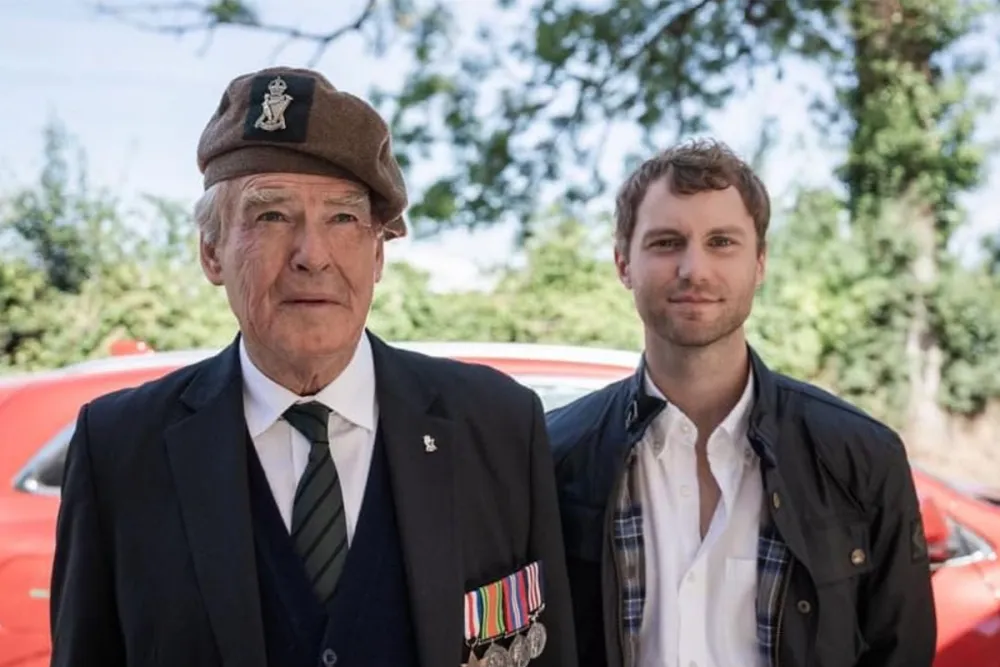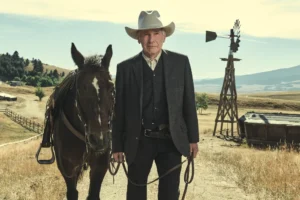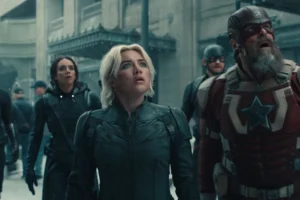According To The variety An amalgam of a road trip dramedy, an emotional memory piece and a nostalgic look at the glory of World War II, “The Last Rifleman” wants to be many things. Alas, Kevin Fitzpatrick’s script fails to give any of these threads the dramatic heft or the character specification they require. Terry Loane directs all of it with a smooth but rather indifferent hand, unable to overcome the script’s limitations. As the veteran referred to by the title, Pierce Brosnan becomes the main reason to watch.
Brosnan is 92-year-old Artie Crawford, living in a care home in Northern Ireland while having poignant and unsettling flashbacks to World War II, when he fought alongside his best friend and fell in love with the woman he eventually married. Facing the end of life, he decides to go back to Normandy to visit the place that haunts his dreams. Despite the distractingly heavy makeup used to age him by two decades, Brosnan grounds the film with a warm and steadfast performance. He remains watchable no matter what silly contrivances the plot throws at him. It’s a pity the film keeps cutting away from the star, as it would have been much stronger had it concentrated on his character.
As Artie makes his way to France, he relies on the kindness of strangers. Despite having an expired passport and being diabetic, he still manages to find his way. He meets a nice French lady (Clémence Poésy) who hides him in her fifth wheel as they cross the channel. There’s a friendly lad (Samuel Bottomley) who helps him hitchhike. There’s even an agreeable German man (Jürgen Prochnow) who once belonged to the Hitler Youth. Artie’s pleasant encounters with each of these one-dimensional characters serve mostly as vehicles for plot exposition. To fill in the gaps in Artie’s backstory, Loane consistently resorts to flashbacks. They are so numerous and indistinguishable that they lose their dramatic power. In one scene, “The Last Rifleman” briefly sparks to life when John Amos joins Brosnan as another WW2 veteran. Fitzpatrick gifts him with the script’s only poignant line about how these older men are “living with ghosts.” Amos’ delivery conjures the gravitas that the numerous flashbacks couldn’t muster. But even then, he has to weather a couple of unfunny jokes about old age and drinking whiskey before being allowed the space to show heartfelt emotion alongside Brosnan. Understandably, the film doesn’t want to be a sloggy mournful story, but these silly jokes and paper-thin characterizations don’t help.
Additionally, a lot of time is unnecessarily spent back in the care home as its administrators try to find out how Archie has escaped and where he is. The audience is forced to follow the humorless attempts by Artie’s friend (Ian McElhinney) not to divulge his escape plans. Somehow there’s also a subplot about a journalist (Desmond Eastwood) following Archie around as he tries to break this story. Since a true story inspired the film, there may be some real-world parallels to this subplot, which the film reduces to pitiful scenes of the journalist uncomfortably trying to sleep on a plane and unable to drive his rental car because of its French-speaking GPS. The passionate power of Brosnan’s performance is diluted with these monotonous cutaways from the main narrative.
“The Last Rifleman” has a simple and straightforward story at its center, while being nostalgic for a nicer, morally uncomplicated moment in history. It also has a tender love story about growing older and living with grief. Yet the filmmakers do not trust the audience to grapple with these plain elements alone, so they add unsophisticated humor and underwritten characters, thus stranding their capable leading man in a dull film. Whatever life Brosnan tries to infuse into the proceedings is undercut by everything that surrounds his performance.
















+ There are no comments
Add yours